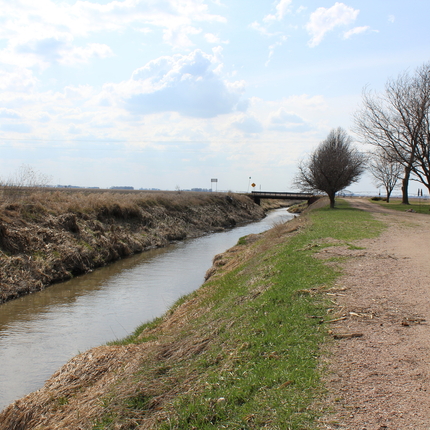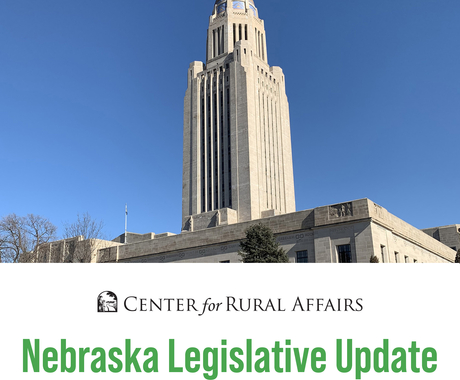By Katie Rock, former staff member
Recent and continued flooding along the Missouri River and throughout Iowa has revived discussion around water quality. Iowa’s history shows that natural disasters can be unifying moments on divisive issues. Following the 2008 floods in eastern Iowa, the Legislature took an interest in preventing flood damage.
While Iowans are dealing with immediate questions from this emergency, legislators are asking what the state can do. A few organizations are offering their own suggestions, including the following three ideas.
First, a new lawsuit filed last week targets water quality in the Raccoon River under the Public Trust Doctrine, which establishes that a state holds in trust some resources for public use, such as air and water, regardless of private property ownership.
Another option for addressing water quality was presented in a new report from the Center for Rural Affairs, “Flowing Forward: Planning Iowa’s Water Quality Future.” The publication analyzes the past, present, and future of using watershed planning to chart a course to address water quality and flooding. The report calls for the empowerment of stakeholders, like Watershed Management Authorities, to create comprehensive watershed plans based on consistent monitoring standards and emphasizes farm-level planning.
A third path forward could be established by updating the 1985 Iowa State Water Plan which looked at the supply, demand, and protection of the state’s water resources. This was initially listed as a recommendation from a task force formed in 2008.
As Iowa continues to recover from the recent floods, policy will be intertwined with concerns about water quality.




